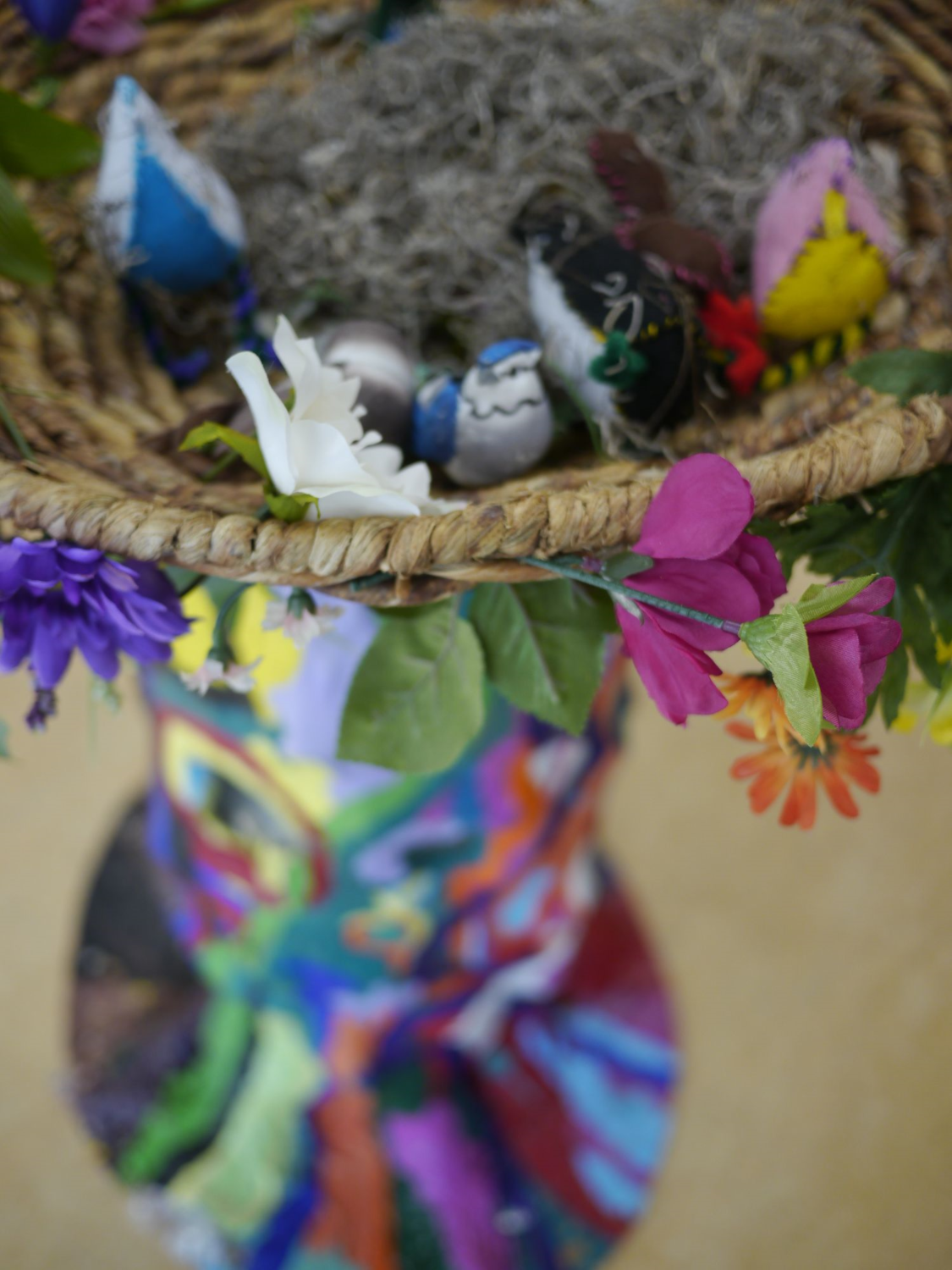Testing Talk

At this morning’s whole school gathering, Opal 1 told us about what they’ve been studying. Taylor explained that they were studying birds and then they saw a giant nest in the woods and they wanted to figure out how big it was and then they started imagining what Birdland would be like. They shared the magical tree they had created, bringing Birdland to life. Ten year old Ethan asked the kindergartners, “So does the tree attract birds which give it enchantment which then attracts more birds and so it’s a multiplier?” That’s a question that our friend Kevin Carroll would rate high on his Wonder-Meter.
At today’s staff meeting, we were exploring the value we find in working at this school with its mission of “strengthening public education by provoking fresh ideas concerning environments where creativity, imagination and the wonder of learning thrive.” Marcy talked about how important a role imagination plays. She shared Ollie’s response about the magical messages his class has been exchanging with creatures in the Arboretum. He said, “I feel so bad for the other kids who don’t get notes.”
Hannah reflected on how, when she reconnected with teacher friends over spring break, she’d ask them about the arts materials they have in their classroooms. Most told her that they only had construction paper – and Hannah said it dawned on her what a limiting factor that was to the development of children’s ideas. She talked about how weeks ago, as she prepared her class for standardized tests, she found herself wondering: What if this were the whole curriculum?
Over the past few weeks, children in grades 3-5 at Opal School have been joining their peers across Oregon in taking the statewide standardized tests. It’s one of those moments when Opal School looks a lot like every other school: Each child sitting with a laptop, siloed apart from her classmates. Glancing over shoulders, I see how the nature of questions provide such a contrast from most learning here: A world where meaning is not socially constructed, devoid of context; vocabulary dependent on schema derived from individual experience; a narrow set of one-right-answers to choose from.
This is the last year for the Oregon Assessment of Knowledge and Skills (OAKS) tests – next year we move on to Smarter Balanced assessments. Pilot testing is currently taking place, presumably to make sure that this next wave will be both “smarter” and “balanced.” To facilitate conversation about this, some of our favorite thinkers in education have created “Testing Talk.” If your students are working through the PARCC or Smarter Balanced pilots, or if you’re witnessing Pearson or McGraw Hill state tests or the ACT, they’re eager to hear your experiences. I’m looking forward to returning to the site regularly to hear what people across the nation are saying.
But I’m not holding my breath for statewide tests that measure creativity, imagination, and the wonder of learning.
